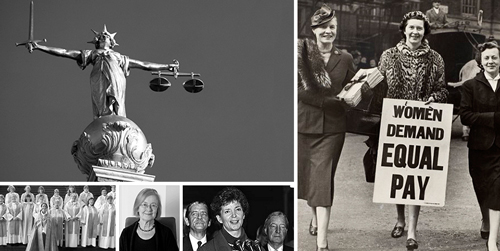
The story of the restraint on anticipation is a textbook case of the development of English property law with respect to women … it was introduced to counter the oppressive effects of laws which facilitated patriarchal power … the campaign for its abolition shows how first-wave feminists recognised the need for married women to have equal property rights with men as a pre-condition to their material emancipation. But it was only because the restraint came to be seen as a burden on men that it came to be abolished.
Rosemary Auchmuty
The ‘Restraint Upon (or more usually ‘On’) Anticipation’ was a device, imposed in a settlement on a married woman, which ensured that she could not touch the capital property that had been settled on her or any future income under the settlement. The purpose was to prevent her husband from forcing her to give it to him. By the mid-twentieth century, the restraint had become a serious encumbrance on married women’s ability to meet their financial obligations, to the annoyance both of the women themselves, who resented the suggestion that they were not competent to handle their own money, and of their creditors who could not get their hands on it. One of the last remaining gender-specific protective devices of equity, the restraint was finally abolished by the Married Women (Restraint Upon Anticipation) Act 1949.
The full version of this landmark is written by Rosemary Auchmuty.